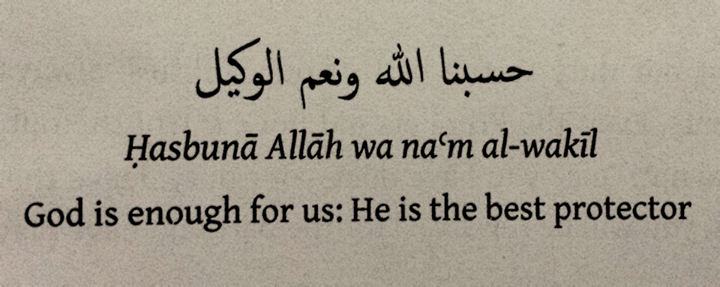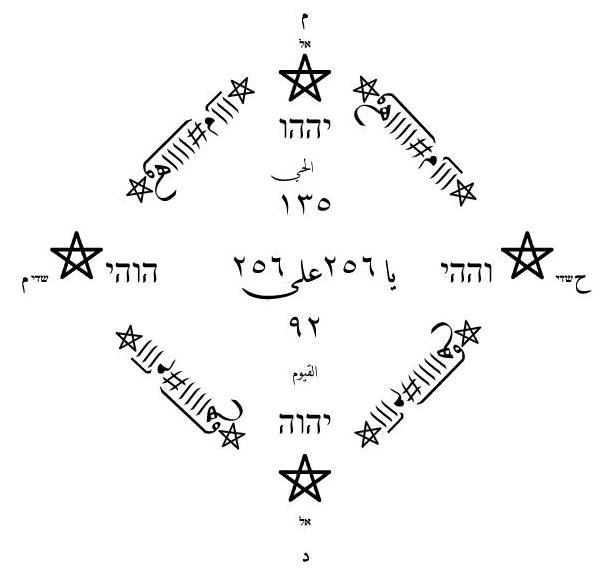The Hadîth Kumayl or Hadîth al-Haqîqa of ‘Alî
Amongst the milieu of Shi’ite gnostics and spirituals one of the oft meditated theopathic discourses of High Imamology – a source establishing an integral esoteric Shi’ite doctrine of the Perfect Man – remains the ḥadīth al-ḥaqīqa (the Tradition of Ultimate Reality), otherwise known as the Ḥadīth Kumayl. This ḥadīth is the narration of an almost Zen-like conversation on the nature of ultimate Reality (al-ḥaqīqa) occuring between the first Shi’ite Imām, ‘Alī ibn Abī Ṭālib (d.40/661), and his disciple Kumayl ibn Zīyād al-Nakhā’ī (d. 85/704?), a one-time governor of the province of Iraq during the latters caliphate. Due to its explicitly gnostic itinerary many of the critical exoteric narrators of the Imāmī akhbār literature (that is, the corpus of the Twelver Shi’ite ḥadīth) continue to consider this piece to be largely pseudoepigraphic. Nevertheless (together with the Sermon of the Two Gulfs and the Sermon of the Exposition) this ḥadīth constitutes one of the central sources of reflective High Imamological inspiration; so much so, that, whether orthodox or heterodox, it has functioned as an almost pivotal proof text of sorts among the Shi’ite contingency of the Iranian followers of the school of Ibn ‘Arabī ever since, most notably ‘Abd’ul-Razzāq Kāshānī and Siyyid Ḥaydar Amulī who commented on it. An illuminating Akbarian exegesis was also offered by the founder of the Ni’matullāhi Sufi Order, Shāh Ni’matullāh Wāli Kirmani, who strictly speaking was not a Shi’ite (rather a Sunni of Shafite legal affiliation), but whose Order would later flower into a full-fledged Shi’ite Sufi Order. In the middle of the nineteenth century of the common era it would also act in Qājār Iran as the basis of a spatiotemporally enacted (albeit ultimately tragic) hierophanic, chilisastic dramaturgy in the minds of the leaders of the heterodox Bābī movement, who, much like the Nizari Isma’ilis of Alamut centuries before, attempting to fulfill the eschaton, in turn had culled much of their inspiration for such deemed ruptures of the sacred into history from those same deep esoteric vistas of High Imamological meditation and exegeses on this Ḥadīth Kumayl (and those other, central items in this corpus of Shi’ite theophanology) made earlier by the two founders of the Shāykhī school, from which Babism primarily derived.
In the margins of his book Bahr al-Asrar (The Ocean of Secrets) Muzaffar ‘Ali Shah Kirmani provides a complete isnâd/chain of narration for this hadîth. Henry Corbin quotes material in En islam iranien vol. 1 which states that this tradition was included in the compilation of the Nahj’ul-Balagha in its earliest recensions. Generally speaking, however, and especially from the time of Sharif al-Radi onwards, the exoteric mujtahids (i.e. the fuqaha) have not considered this tradition to be authentic. The entirety of the Shi’ite gnostic milieu without fail still do, and always will. Amongst other noteworthy commentators, it was also commented upon by ‘Abdu’l-Razzaq Kashani, Sayyid Haydar Amuli and Ibn Abi Jumhur al-Ahsa’i. This present translation is ours and a future extensive commentary will be forthcoming by us as well. Our Greatest Name commentary already offers a short commentary. A study by Bruce Wannell and Herman Landolt on this hadîth is forthcoming by the Isma’ili Institute in London. Finally, it should be noted that the entire metaphysical doctrine of the Fatimiya Sufi Order may be said to be contained within this hadîth.
Hadith al-Haqiqa
يا اميرالمؤمنين ما الحقيقة
Kumayl: O Commander of the Faithful, what is Ultimate (or absolute) Reality?
فقال ما لك والحقيقة
‘Ali: What have you and Ultimate Reality to do with each other?
فقال او لست صاحب سرّك
Kumayl: Is it not the case that I am already sharing your secrets as a companion?
قال بلى ولكن يرشح عليك ما يطفح منى
‘Ali: Yes, indeed. But that which sprinkles unto you is billowing through me unto you.
فقال ما الحقيقة
Kumayl: So what is Ultimate Reality?
كشف سبحات الجلال من غير اشارة
‘Ali: (1) The disclosure of the Majesties of Glorification without indication.
فقال زدنى بيانا
Kumayl: Please explain further.
محو الموهوم و صحو المعلوم
‘Ali: (2) The [apophatic] negation of all speculation and the realization of that which can be realized.
فقال زدنى بيانا
Kumayl: Please tell me more.
قال هتك الستر لغلبة السرّ
‘Ali: (3) The nullificative annihilation of the secret by the victorious rending of the veil off the mystery of the secret.
فقال زدنى بيانا
Kumayl: Please explicate further.
قال جذب الاحدية لصفة التوحيد
‘Ali: (4) The attraction of the Divine Oneness by the attributive apprehension of the Divine Unicity.
فقال زدنى بيانا
Kumayl: Please explain further.
نورٌ اشرق من صبح الازل فيلوح على هياكل التوحيد آثاره
(5) A Light Illuminating from the Dawn of Pre-Eternity and shedding its traces upon the tablets of the Talismanic-Temples of Unicity.
فقال زدنى بيانا
Kumayl: Please tell me more.
فاطف السراج فقد طلع الصبح
(6) Extinguish the lamp for the Dawn hath indeed Arisen !!






